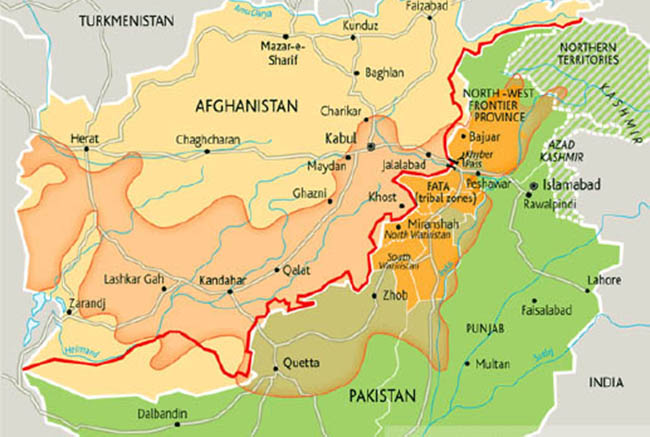The peace negotiation is an endless process discussed between Afghanistan and Pakistan. There was no positive outcome and the deteriorating security situation has continued unabated. Former President had trips to Pakistan 21 times with the bona fide intention of peace. His generous acts to Pakistan’s demands such as releasing Taliban’s prisoners, stopping night operations against the Taliban fighters, banning the use of heavy weapons against them, and calling them “brother” in political statements reveal the fact that peace has been Afghanistan’s top priority.
Viewing the issue from the perspective of former administration seems to be naïve of one in diplomatic relations, to be kept in dark from the depth of Islamabad’s strategy and to learn no experience from the foul play in the negotiating table which was a strong blow to the country. However, the new approach of the National Unity Government (NUG) towards Islamabad’s policy shows that Kabul is determined to review its diplomacy, utilize the past experience and include public will and the objective realities in it.
It is about two years that Afghan-Pak relations have soured and it is easily noticeable. The government sought to put an end to strong dependence on Pakistan and open a new window in regional and international relations. Moreover, extending the commercial cooperation with regional countries will promote Afghanistan to a higher position.
The gathering of regional countries in Shanghai Cooperation Organization summit, which was held with the aim of promoting regional friendly relations in its 17th meeting in the capital city of Kazakhstan, Astana, paved the way for Pakistan to demand the resumption of reconciliation process.
There are several views about the resumption of the Quadrilateral Coordination Group (QCG) consisting of Afghanistan, Pakistan, the US and China. Two of the views will be explained shortly:
First, the global situation has been changed dramatically which affected the political and security relations in the region. The issue of Qatar reflects the same fact as Saudi Arabia, the United Arab Emirate, Bahrain and Egypt severed their diplomatic and commercial ties with Qatar alleging that it was supporting “extremism” and terrorist networks such as the self-styled Islamic State of Iraq and the Levant (ISIL), Taliban, al-Qaeda, etc. This issue happened overnight leaving Qatar into an island under siege.
No matter what are the main reasons behind this issue, but it is most likely that whichever country supports terrorist networks, will be punished by regional and international countries.
Perhaps, the surge of anger against Qatar, as a supporter of terrorism, might have signaled a threat to Pakistan not to be doomed in the same fate. That is to say, this issue will have prompted Pakistani officials to include the negotiation of peace in its agenda and also realize this fact that Trump’s administration is too different from Obama’s administration.
The US seems serious enough in resuming the Quadrilateral talks and believing the fact that war will not be a solution for peace and negotiation will be the only viable way for bringing peace and stability. It is hoped that Pakistan will also pursue the negotiation of peace with bona fide intention and any foul play in this regard might have repercussions.
The second view suggests that Pakistan might capitalize on the current condition and may resume its previous game under the title of peace talks. It has played such games several times with the international community and the United States. After coming out of a stalemate, it has returned to previous policy.
It is likely that Pakistan is now in a better state than the past with having the support of Russia, China and some other countries with it.
Afghanistan’s manner of presenting in this process is a significant issue. Kabul should not sacrifice everything in a probable peace process. Besides protecting the security, political, and commercial outcomes and foreign policy, Kabul administration should join this process with confidence so that it can lead an Afghan-owned peace talks and takes matters in its own hands in the future. It should be noted that a genuine intention for peace is still a matter of question.
The fruition of peace negotiation is a matter of opinion. There still seems many ifs and buts. The Taliban, whose presence is the most significant, should be persuaded to stop war and join process. But this group yet to signal in this regard.
It is hoped that this time the peace talks will come to fruition and the participants, mainly Pakistan, use their leverage to nudge the Taliban to the peace table. This round of peace is believed to be more critical and perhaps the last chance for the Taliban, as Ghani said in Kabul Process, to join peace.
Home » Opinion » Resumption of Peace Talks and New Requirements
Resumption of Peace Talks and New Requirements
| Liaqat Ali Amini

